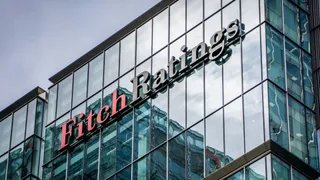
Fitch affirms KERC IFS ratings
Fitch Ratings has affirmed Kazakhstan Energy Reinsurance Company's (KERC) insurer financial strength (IFS) Rating at 'BBB' and National IFS Rating at 'AAA(kaz)'. The outlooks are stable.
Fitch said that the ratings reflect KERC's core captive status to Kazakhstan's Sovereign Wealth Fund Samruk-Kazyna JSC, as well as the reinsurer's high level of integration with SK.
Fitch considers KERC a core captive of SK. KERC is indirectly owned by JSC National Company KazMunayGas, which is ultimately majority-owned by SK. However, Fitch views SK as KERC's parent when assessing its captive status. KERC's IFS Rating is equalised with SK's long-term issuer default rating. This is due to the high level of integration between KERC and SK, the reliance of the business model on SK and the business coming from other state-owned companies within SK's portfolio, as well as KERC's importance in providing reinsurance protection to state-owned companies under SK's umbrella.
Fitch has not conducted a full standalone evaluation of a core captive as the captive's IFS Rating is linked to the parent's rating. However, certain attributes have been evaluated on a standalone basis to determine if any deviations from the parent's rating are warranted.
KERC's main activity is to administrate and pool risks of SK's corporate reinsurance programme in accordance with SK's corporate code. The reinsurer's purpose is also to optimise SK's reinsurance programme costs. Neither SK nor NC KMG view KERC as a profit centre, which is evidence of strong operational synergies. KERC's mission and strategic goals are tied to SK's risk management and risk financing strategy. Its board of directors has two representatives from SK and two from NC KMG.
KERC writes a wide range of property and casualty risks, including property damage and business interruption, directors' and officers' liability, third-party liability, operators' extra expenses, aviation hull and liability risks, with property insurance the dominant line. All of KERC's business comes from NC KMG and other key national companies under SK's ownership and management. NC KMG made up 79% and 83% of gross written premiums in 2023 and 8M24, respectively.
Fitch considers KERC's capitalisation very strong. At end-2023, KERC scored 'Extremely Strong' under Fitch's Prism Global model. At end-2024, KERC's minimum capital requirement was USD780,000, while the reinsurer's eligible capital was $22.5 million as per financial reporting submitted to the Astana International Financial Centre. Fitch expects capitalisation to remain very strong.
KERC has an extensive retrocession programme that covers the company's main business lines. It has several quota-share facultative agreements covering property, marine cargo, D&O liability, third-party liability, aviation and OEE risks. Retrocession programmes are well-diversified across an adequate number of international reinsurers rated above 'A-' and domestic reinsurers rated above 'B', which share slightly reduced in 2024 to 16.5% from 22.5% in 2023.
Did you get value from this story? Sign up to our free daily newsletters and get stories like this sent straight to your inbox.

